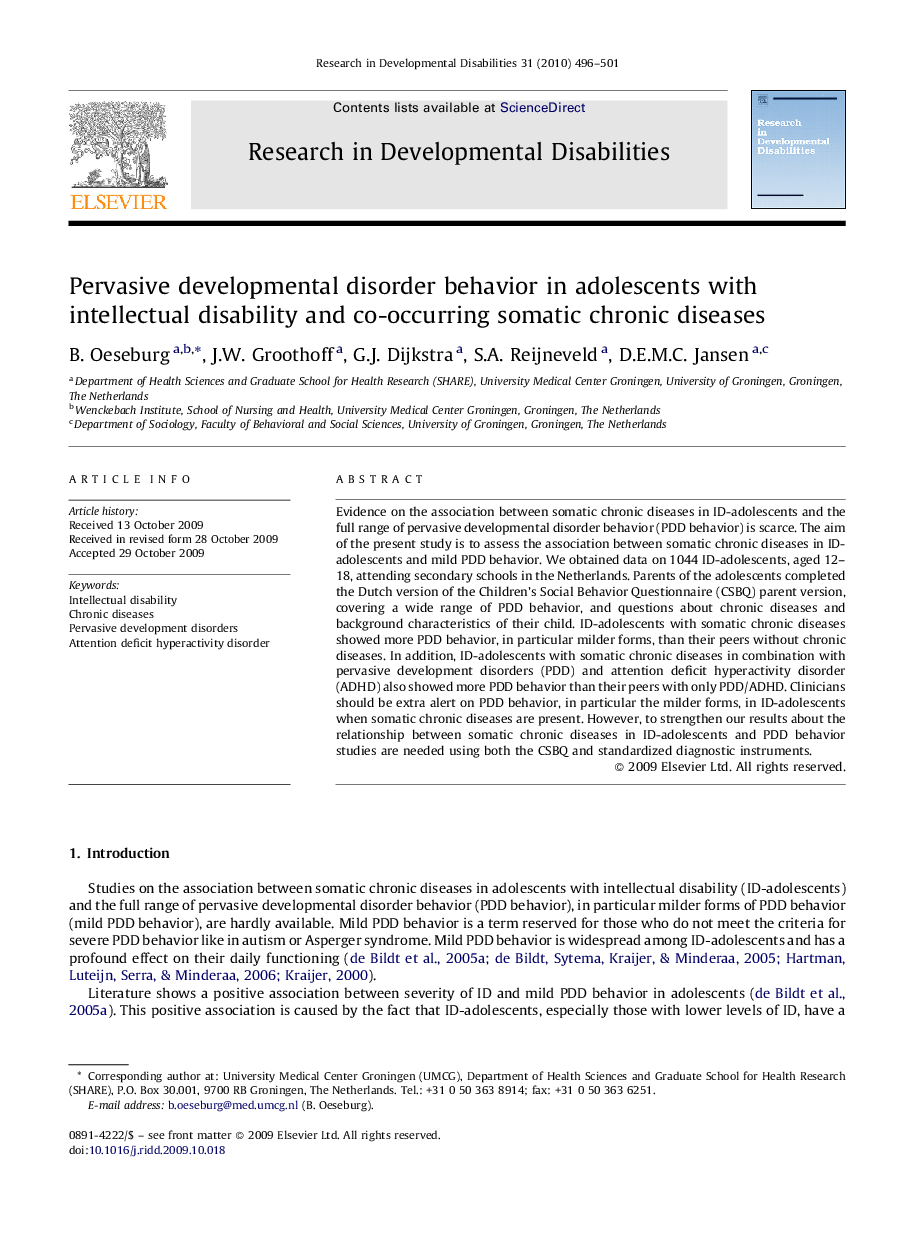ترجمه فارسی عنوان مقاله
رفتار اختلال فراگیر رشد در نوجوانان کم توان ذهنی و بیماری های همزمان مزمن جسمی
عنوان انگلیسی
Pervasive developmental disorder behavior in adolescents with intellectual disability and co-occurring somatic chronic diseases
| کد مقاله | سال انتشار | تعداد صفحات مقاله انگلیسی |
|---|---|---|
| 72378 | 2010 | 6 صفحه PDF |
منبع

Publisher : Elsevier - Science Direct (الزویر - ساینس دایرکت)
Journal : Research in Developmental Disabilities, Volume 31, Issue 2, March–April 2010, Pages 496–501
ترجمه کلمات کلیدی
ناتوانی ذهنی؛ بیماری های مزمن؛ اختلالات فراگير رشد؛ اختلال نقص توجه بیش فعالی
کلمات کلیدی انگلیسی
Intellectual disability; Chronic diseases; Pervasive development disorders; Attention deficit hyperactivity disorder

